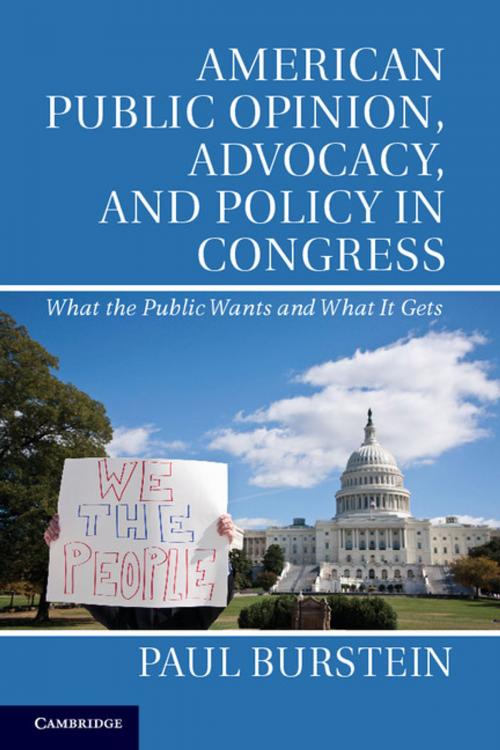American Public Opinion, Advocacy, and Policy in Congress
What the Public Wants and What It Gets
Nonfiction, Social & Cultural Studies, Political Science, Government, Democracy| Author: | Paul Burstein | ISBN: | 9781107502697 |
| Publisher: | Cambridge University Press | Publication: | January 20, 2014 |
| Imprint: | Cambridge University Press | Language: | English |
| Author: | Paul Burstein |
| ISBN: | 9781107502697 |
| Publisher: | Cambridge University Press |
| Publication: | January 20, 2014 |
| Imprint: | Cambridge University Press |
| Language: | English |
Between one election and the next, members of Congress introduce thousands of bills. What determines which become law? Is it the public? Do we have government 'of the people, by the people, for the people?' Or is it those who have the resources to organize and pressure government who get what they want? In the first study ever of a random sample of policy proposals, Paul Burstein finds that the public can get what it wants - but mainly on the few issues that attract its attention. Does this mean organized interests get what they want? Not necessarily - on most issues there is so little political activity that it hardly matters. Politics may be less of a battle between the public and organized interests than a struggle for attention. American society is so much more complex than it was when the Constitution was written that we may need to reconsider what it means, in fact, to be a democracy.
Between one election and the next, members of Congress introduce thousands of bills. What determines which become law? Is it the public? Do we have government 'of the people, by the people, for the people?' Or is it those who have the resources to organize and pressure government who get what they want? In the first study ever of a random sample of policy proposals, Paul Burstein finds that the public can get what it wants - but mainly on the few issues that attract its attention. Does this mean organized interests get what they want? Not necessarily - on most issues there is so little political activity that it hardly matters. Politics may be less of a battle between the public and organized interests than a struggle for attention. American society is so much more complex than it was when the Constitution was written that we may need to reconsider what it means, in fact, to be a democracy.















